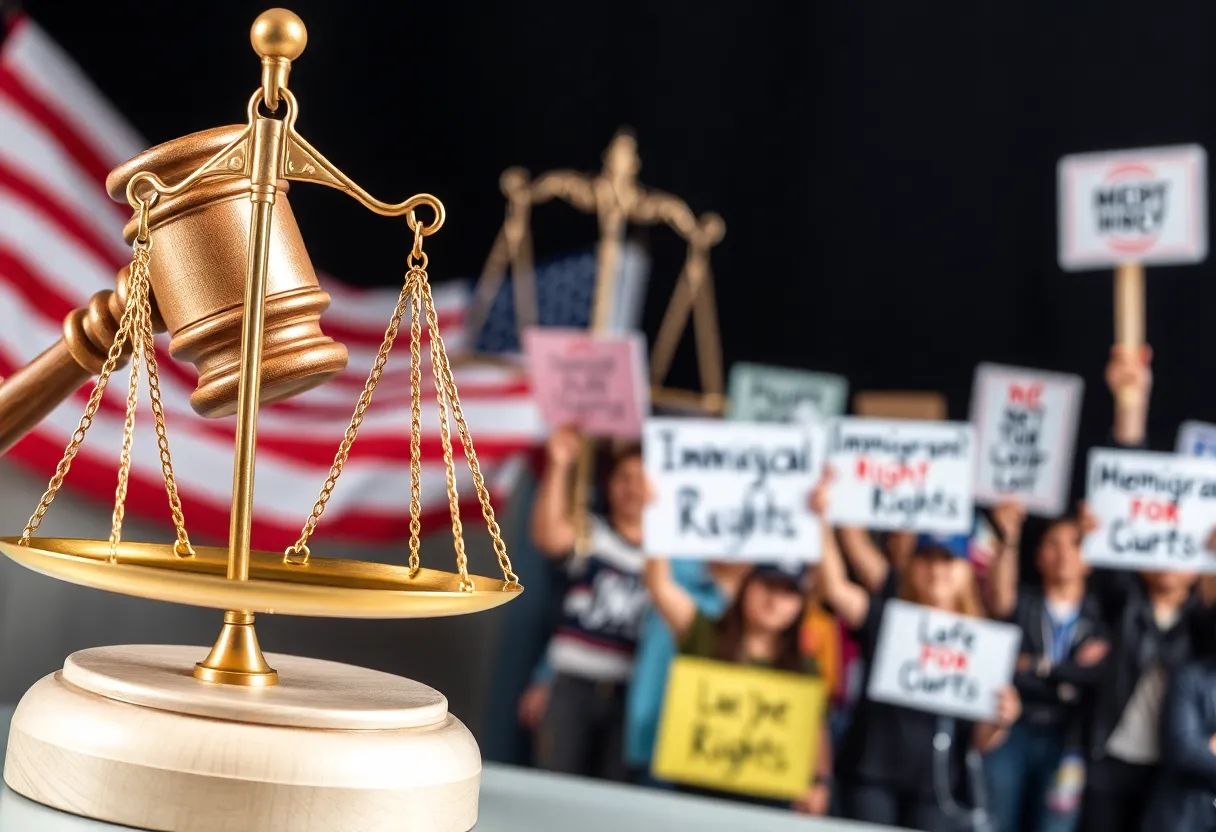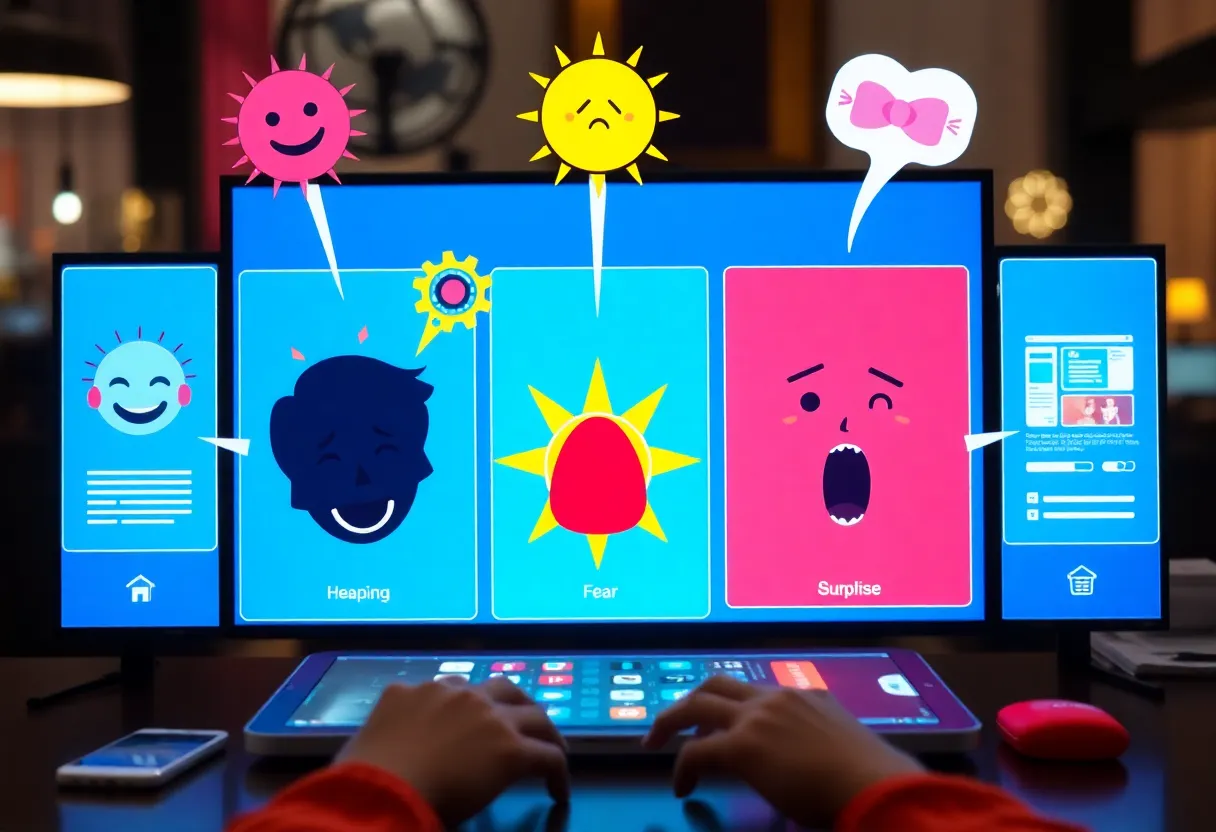News Summary
In a significant ruling, the Supreme Court has blocked deportations of Venezuelans linked to gangs by a 7-2 vote, emphasizing their rights to challenge deportation claims. This decision halts the previous administration’s expedited deportation plan, reaffirming the necessity for adequate legal defense time. Critics of the ruling, including former President Trump, express concerns over its potential impact on crime, while it showcases an ongoing debate about immigration policy and due process rights.
Supreme Court Keeps Venezuelans Safe from Deportation
In a recent ruling that many are celebrating, the Supreme Court has stepped in to protect Venezuelans from deportation. By a 7-2 vote, the justices decided to block the Trump administration’s plan to deport individuals considered by the government to be connected to gangs, specifically the Tren de Aragua. This ruling not only has potential impacts on those in detention but also brings forward significant discussions about due process rights.
What’s the Big Deal?
The core of the issue revolves around the treatment of detainees facing deportation. The court made it very clear that these individuals deserve more than just a quick curtain call when it comes to legal defenses. They need to have adequate time to challenge their deportation claims before being forcibly removed from the country. Previously, the Trump administration had set a terrifying precedent by allowing just 24 hours for detainees to respond to their deportation orders, which the court found to be distinctly insufficient.
Setting Things Straight
Before the ruling, there was an existing order that had already halted the plans to deport these individuals held in northern Texas. This new decision reinforces that order and clarifies what is needed to ensure that everyone gets a fair chance to voice their legal objections. The justices sent the case back to an appeals court to figure out what the appropriate notice period should be for those facing deportation.
What About the Alien Enemies Act?
This entire situation has its roots in the Trump administration’s use of a very old law—the Alien Enemies Act from the 18th century. The government has been trying to utilize this law to expedite the deportation of Venezuelans who are claimed to be linked to criminal gangs. However, this move has faced heavy scrutiny and legal challenges. Critics argue that the justification for using this law is shaky at best.
The Court’s Concerns
The Supreme Court wasn’t shy about criticizing the administration. They highlighted that giving detainees only a day’s notice to fight against their deportation, without any clear guidance on due process rights, simply doesn’t cut it. While they paused deportations for now, it’s important to note that the court didn’t make a final call on whether deportations under the Alien Enemies Act are lawful; they just kept things on hold for the time being.
Reactions from Both Sides
The reaction to the ruling has been mixed. On one side, many see this as a huge victory for those advocating for immigrant rights. Attorneys, including those from the American Civil Liberties Union, have expressed their relief at seeing wartime authority curtailed when it comes to deportation without due process considerations. On the flip side, former President Trump has criticized the ruling, claiming it ties his administration’s hands when trying to deal with alleged criminals. He believes this will only result in more crime within the United States.
A Broader Legal Landscape
This ruling is part of a larger trend concerning immigration policy and deportation, where the Trump administration has faced many legal hurdles. There are multiple cases ongoing across the country challenging how the Alien Enemies Act is being applied. The Supreme Court’s decision is especially poignant as it reiterates the need for due process rights to be upheld—recognizing that everyone deserves a fair chance, no matter their circumstances.
What’s Next?
While the immediate threat of deportation for these Venezuelans is on hold, the litigation surrounding their situation is far from over. The appeals court will soon determine just how much time and notice is sufficient for detainees to prepare their defenses. In a landscape where immigration policy continues to spark debate, this ruling stands as a beacon for those advocating for fair legal practices.
As this story unfolds, many will be keeping an eye on changes in the legal system and how they affect the lives of thousands seeking safety and stability in the U.S.
Deeper Dive: News & Info About This Topic
- NBC News
- Wikipedia: Immigration law in the United States
- Bloomberg
- Google Search: Supreme Court Venezuelans deportation
- AP News
- Google Scholar: Deportation legal challenges
- USA Today
- Encyclopedia Britannica: Alien Enemies Act
- New York Times
- Google News: Supreme Court deportation Venezuelans

Author: STAFF HERE FLORENCE WRITER
The FLORENCE STAFF WRITER represents the experienced team at HEREFlorence.com, your go-to source for actionable local news and information in Florence, Florence County, and beyond. Specializing in "news you can use," we cover essential topics like product reviews for personal and business needs, local business directories, politics, real estate trends, neighborhood insights, and state news affecting the area—with deep expertise drawn from years of dedicated reporting and strong community input, including local press releases and business updates. We deliver top reporting on high-value events such as the Florence Festival of Lights, Pee Dee Pride, and agricultural expos at the Florence Center. Our coverage extends to key organizations like the Florence Regional Chamber of Commerce and the Pee Dee Area Council of Governments, plus leading businesses in healthcare and retail that power the local economy such as McLeod Health and Pee Dee Electric Cooperative. As part of the broader HERE network, including HERECharleston.com, HEREColumbia.com, HEREGreenville.com, and HEREHiltonHead.com, we provide comprehensive, credible insights into South Carolina's dynamic landscape.





